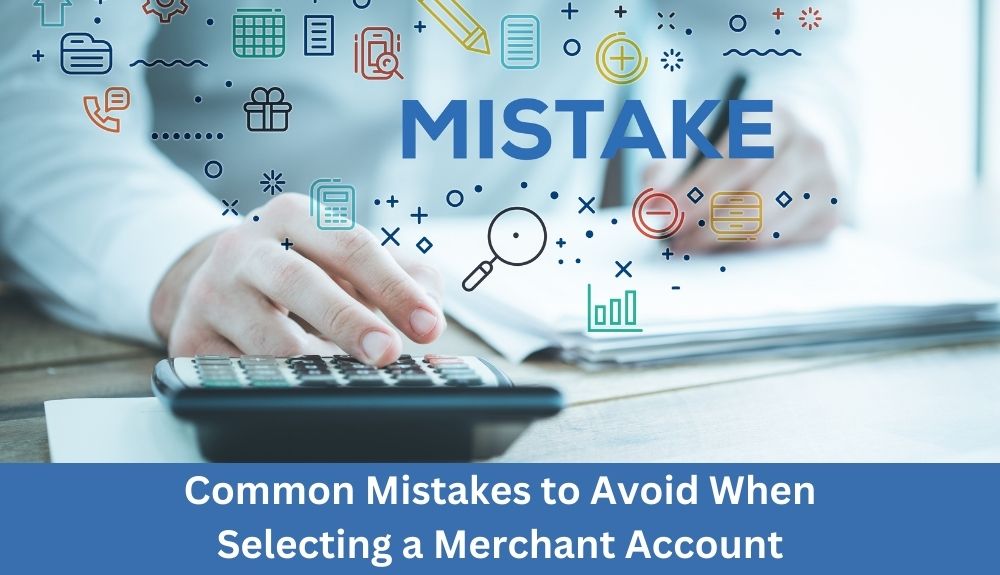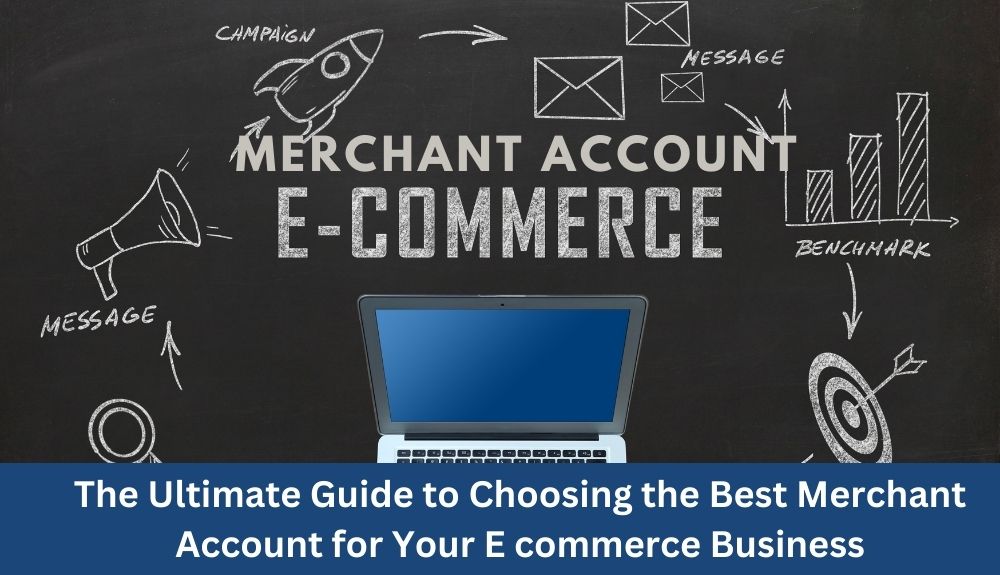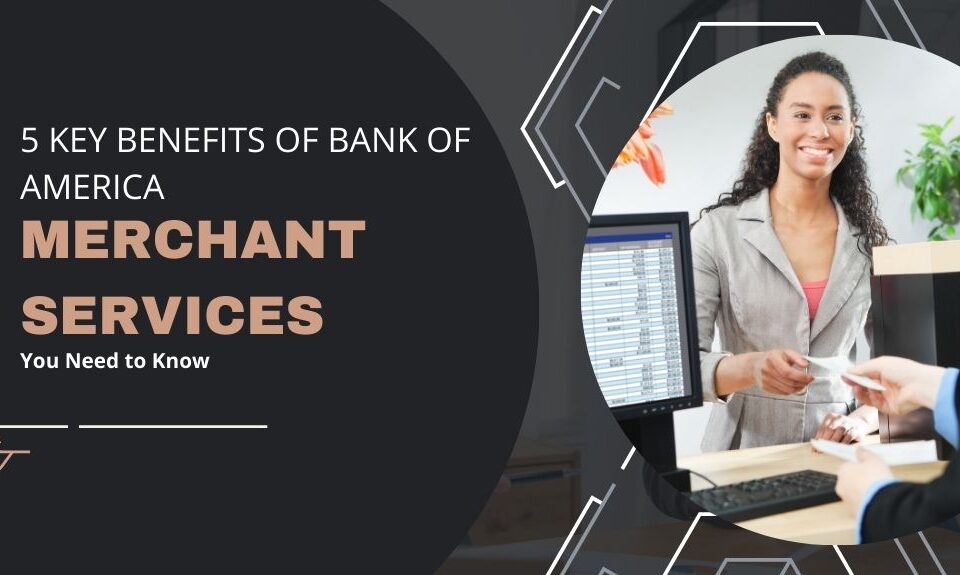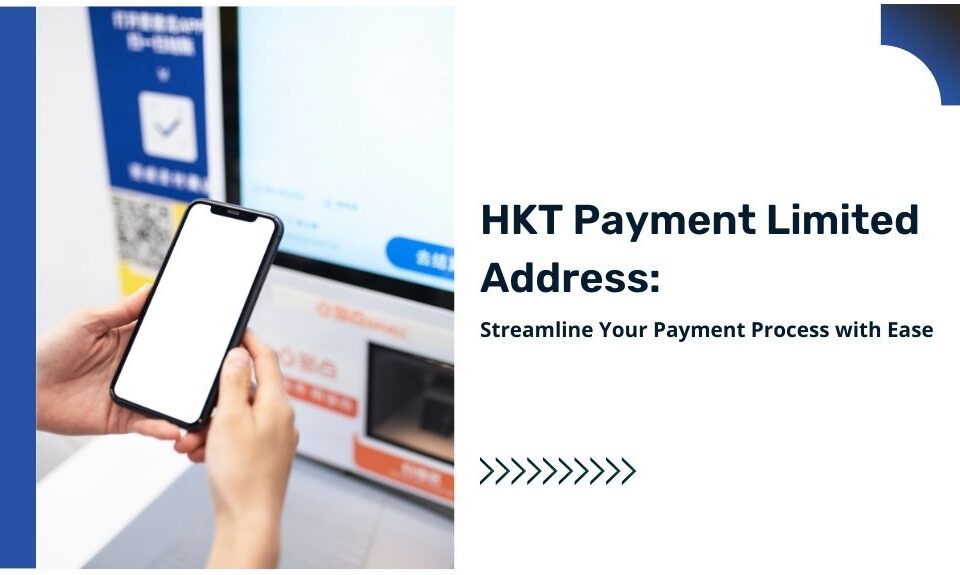The Ultimate Guide to Choosing the Best Merchant Account for Your E commerce Business

Stay Ahead of the Curve: Explore the Best GPS Fleet Tracking Software for 2024
December 6, 2023
Stay Ahead of the Game: Find the Perfect Merchant Account for Your Fitness Center
December 14, 2023Are you ready to boost your e-commerce business to new heights? Choosing the right merchant account can make all the difference. Imagine seamless payment processing, increased sales, and satisfied customers. But with so many options out there, how do you find the best one for your business? Don’t worry, we’ve got you covered.
In this ultimate guide, we’ll walk you through the process of choosing the perfect merchant account for your e-commerce business. We’ll cover everything from understanding your business needs to comparing rates and fees, so you can make an informed decision. Whether you’re just starting out or looking to switch providers, this guide has you covered.
1. Understanding Merchant Accounts
1. What is a Merchant Account?
A merchant account is a type of bank account that allows businesses to accept payments through credit or debit cards. It acts as a holding place for the funds generated from customer transactions before they are ultimately deposited into the business’s designated bank account.
2. Why Do You Need a Merchant Account for Your E-commerce Business?
Having a merchant account is crucial for an e-commerce business as it enables you to accept online payments securely and efficiently. Without a merchant account, you would have limited options for accepting payments, which could result in lost sales and hinder the growth of your business.
3. How Does a Merchant Account Work?
When a customer makes a purchase on your e-commerce website and chooses to pay with a credit or debit card, the payment information is securely transmitted to your merchant account provider. The provider then verifies the transaction and processes the payment. Once the payment is approved, the funds are held in your merchant account before being transferred to your business bank account within a designated time frame.
4. Finding the Right Merchant Account Provider
When choosing a merchant account provider, it’s important to consider several factors to ensure you find the best fit for your e-commerce business. Here are some key considerations:
Fees: Understand the transaction fees, monthly fees, and any other charges associated with the merchant account. Compare different providers to find the most competitive rates.
Payment Gateway Integration: Check if the merchant account provider integrates seamlessly with popular payment gateways. This integration ensures a smooth payment process for your customers.
Security Measures: Look for a merchant account provider that prioritizes the security and protection of customer payment information. This includes robust fraud detection and prevention measures.
Customer Support: Consider the level of customer support provided by the merchant account provider. You want a reliable partner who can assist you promptly in case of any technical or payment-related issues.
Scalability: Choose a merchant account provider that can accommodate the growth of your e-commerce business. Ensure they can handle increased transaction volumes without disruptions.
Key takeaway: Understanding merchant accounts is essential for any e-commerce business owner. By finding the right merchant account provider, you can ensure convenient and secure payment processing for your customers, ultimately contributing to the success and growth of your online business.
2. Importance of Choosing the Right Merchant Account
In the world of e-commerce, choosing the right merchant account is essential for the success and growth of your business. A merchant account is a special type of bank account that allows businesses to accept online payments from their customers. It serves as a bridge between your online store and the payment processing networks, enabling smooth and secure transactions.
1. Ensures smooth payment processing
With the right merchant account, you can provide your customers with a seamless and hassle-free payment experience. This means faster checkouts, reduced cart abandonment rates, and increased customer satisfaction.
By offering multiple payment options such as credit cards, debit cards, and digital wallets, you can cater to the preferences of a wide range of customers, maximizing your sales potential.
2. Enhances security and protects sensitive data
The right merchant account comes with robust security measures in place to safeguard sensitive customer information. This ensures that your customers’ payment data remains protected and reduces the risk of fraudulent activities.
Look for merchant account providers that offer features like encryption, tokenization, and secure payment gateways to provide an extra layer of security.
3. Facilitates scalability and growth
As your e-commerce business grows, so will your payment processing needs. Choosing a merchant account that can accommodate your business’s future growth is crucial.
Scalable merchant accounts allow you to process higher transaction volumes and support additional payment methods as your customer base expands. This flexibility ensures that your payment infrastructure keeps up with your business’s demands.
4. Offers competitive pricing and favorable terms
Merchant account providers offer various pricing structures, including transaction fees, monthly fees, and interchange rates. It’s important to compare different providers to find the best rates that align with your business’s budget and needs.
Additionally, understanding the terms and conditions of your merchant account is vital. Look for providers with transparent pricing, no hidden fees, and favorable contract terms that allow you to easily manage and control your payment processing costs.
Remember, choosing the right merchant account is not a decision to be taken lightly. It directly impacts your ability to accept payments online, maintain customer trust, and drive revenue. Take the time to research and thoroughly evaluate the features, security measures, pricing, and scalability of different merchant account providers.
3. Factors to Consider When Choosing a Merchant Account
When it comes to selecting a merchant account for your e-commerce business, there are several key factors that you should consider. Taking the time to evaluate these factors will ensure that you make an informed decision that aligns with your specific business needs. Here are the top aspects to keep in mind:
1. Payment Processing Fees
Comparison Shopping: Look for merchant account providers that offer competitive rates and transparent fee structures. Consider the various types of fees, such as transaction fees, monthly fees, and chargeback fees.
Negotiation Opportunities: Some merchant account providers are open to negotiating fees based on your business volume and needs. Don’t hesitate to reach out and discuss potential discounts or customized pricing.
2. Integration Options
E-commerce Platform Compatibility: Ensure that the merchant account you choose seamlessly integrates with your e-commerce platform. Whether you’re using Shopify, WooCommerce, or another platform, confirm compatibility to avoid technical hurdles.
Third-Party Integration: Consider any existing third-party services or tools you use, such as accounting software or customer relationship management (CRM) systems. Confirm that the merchant account integrates smoothly with your desired third-party tools.
Checklist for Integration Options:
Compatibility with E-commerce Platform: Confirm integration compatibility with your specific e-commerce platform.
Third-Party Integration: List any third-party tools or services you use and check for integration capabilities.
3. Payment Gateway
Standard Features and Functionality: Evaluate the features and functionality offered by different payment gateway providers. Look for options like secure payment processing, fraud prevention tools, and easy customer checkout experiences.
Customization and Branding: Consider whether the payment gateway allows you to customize the checkout process to align with your brand. This can enhance your customers’ trust and improve the overall user experience.
4. Customer Support and Service
Responsiveness and Availability: Research the reputation of the merchant account provider’s customer support and assess their responsiveness and availability.
4. Key Features to Look for in a Merchant Account
When choosing a merchant account for your e-commerce business, there are several key features that you should consider. These features will help ensure smooth transactions, secure payments, and overall success for your online store. Here are the top features to look for in a merchant account:
1. Payment Gateway Integration:
Ensure that the merchant account seamlessly integrates with popular payment gateways such as PayPal, Stripe, or Square. This will provide your customers with a wide range of payment options and improve the overall checkout experience.
2. Fraud Detection and Prevention:
Look for a merchant account that offers robust fraud detection and prevention tools. This will help protect your business and customers from fraudulent activities, chargebacks, and unauthorized transactions.
3. Multi-Currency Support:
If you have an international customer base or plan to expand globally, it’s crucial to select a merchant account that supports multiple currencies. This will enable your customers to make purchases in their preferred currency, resulting in a seamless shopping experience.
4. Competitive Rates and Fees:
Compare the rates and fees offered by different merchant account providers. Look for transparent pricing structures, reasonable transaction fees, and no hidden charges. It’s also essential to consider the costs associated with chargebacks, recurring billing, and account termination.
5. Quick and Easy Set-Up Process:
Choose a merchant account that offers a straightforward and efficient onboarding process. Look for providers that offer easy-to-use integration tools, clear documentation, and responsive customer support to help you get your online store up and running quickly.
6. Customized Reporting and Analytics:
Opt for a merchant account that provides detailed reporting and analytics capabilities. This will allow you to track and analyze your sales performance, identify trends, and make informed decisions to optimize your e-commerce business.
7. Payment Security and Compliance:
Ensure that the merchant account adheres to the highest security standards, such as PCI DSS compliance. This will protect your customers’ sensitive information and build trust in your brand, ultimately increasing sales and customer loyalty.
8. Scalability and Flexibility:
Consider the future growth of your business and select a merchant account that can scale with your needs. Look for providers that offer flexible plans, accommodate high transaction volumes, and provide solutions for seasonal businesses.
💡 key Takeaway: When choosing a merchant account for your e-commerce business, prioritize features such as payment gateway integration, fraud prevention tools, multi-currency support, competitive rates and fees.
5. Different Types of Merchant Accounts

When it comes to setting up a merchant account for your E-commerce business, it’s important to understand the different types available to you. Each type has its own features and benefits, so choosing the right one can make a significant impact on your business’s financial operations. Here are five common types of merchant accounts to consider:
1. Traditional Merchant Accounts:
This is the most common type of merchant account, offered by banks or financial institutions.
They allow you to accept credit card payments in person, online, or over the phone.
Requires a business bank account and a credit check.
Typically, it has a fixed monthly fee, transaction fees, and sometimes a setup fee.
Ideal for businesses with a consistent volume of transactions and stable revenue.
2. Internet Merchant Accounts:
Specifically designed for online businesses.
Allows you to accept credit card payments securely through your website.
Requires a payment gateway to process online transactions.
Transaction fees and setup fees are common.
Suitable for businesses that primarily operate online and have high volumes of online sales.
3. High-Risk Merchant Accounts:
Designed for businesses categorized as high-risk industries such as online gaming, adult entertainment, or debt collection.
These accounts come with higher fees and more stringent underwriting processes.
Offer specialized security measures to mitigate the risks associated with high-risk industries.
Ideal for businesses that operate in industries with higher chargeback rates or regulatory scrutiny.
4. Mobile/Wireless Merchant Accounts:
Tailored for businesses that need the flexibility to accept payments on the go.
Allows you to process credit card transactions using a mobile device or wireless terminal.
Compatible with smartphones, tablets, or portable card readers.
Offers convenience for businesses like food trucks, delivery services, or event vendors.
5. Aggregator Merchant Accounts:
Also known as payment facilitators or third-party processors.
Offers a streamlined onboarding process, allowing businesses to start accepting payments quickly.
Suitable for small businesses or startups with low transaction volumes.
Higher per-transaction fees but typically no monthly fees or long-term contracts.
It’s crucial to evaluate the specific needs of your E-commerce business and consider factors such as transaction volume, security requirements, and industry type when choosing the right merchant account.
6. Benefits and Limitations of Different Merchant Account Providers
When it comes to choosing a merchant account provider for your e-commerce business, it’s essential to consider the benefits and limitations of each option. This section will provide an overview of various merchant account providers, highlighting their advantages and potential drawbacks. Let’s dive into the details:
1. PayPal:
Benefits:
Widely recognized and accepted by customers worldwide.
Offers a user-friendly interface and easy integration options.
Provides reliable fraud protection and secure transactions.
Limitations:
Some users might find the fees associated with PayPal transactions relatively higher.
Limited customization options for the checkout process.
2. Stripe:
Benefits:
Suitable for businesses of all sizes, from startups to enterprises.
Offers customizable payment options to match your brand.
Provides advanced fraud protection and secure payment processing.
Limitations:
Stripe may pose a challenge for merchants operating in high-risk industries.
More advanced technical knowledge might be required for integration.
3. Square:
Benefits:
Ideal for small businesses and brick-and-mortar stores transitioning into e-commerce.
Provides an easy-to-use point-of-sale (POS) system for in-person and online payments.
Offers transparent pricing with no monthly fees.
Limitations:
Limited international payment options compared to other providers.
Some users report occasional funds withholding or account freezes.
4. Authorize.Net:
Benefits:
Well-established and trusted provider in the industry.
Scalable options suitable for businesses with varying transaction volumes.
Offers extensive payment gateway integrations.
Limitations:
Requires a separate merchant account in addition to the Authorize.Net service.
The setup process may be more complex compared to other providers.
5. Amazon Pay:
Benefits:
Seamlessly integrates with your existing Amazon account and user data.
Provides a trusted and convenient payment option for Amazon customers.
Offers robust fraud protection and secure transactions.
Limitations:
Limited to customers with Amazon accounts, potentially excluding some shoppers.
Certain products or services may not be eligible for Amazon Pay.
💡 key Takeaway: When choosing a merchant account provider for your e-commerce business, carefully consider the benefits and limitations of each option to determine which one aligns best with your specific needs and goals.
7. How to Compare Merchant Account Providers
Choosing the right merchant account provider is crucial for the success of your e-commerce business. To make an informed decision, you should carefully compare different providers based on several key factors. Here are some guidelines to help you compare merchant account providers effectively:
1. Fees and Pricing:
Look for transparency in pricing structures. Avoid providers that have hidden fees or complicated pricing models.
Consider the setup fees, monthly fees, transaction fees, chargeback fees, and any additional fees that may apply.
Determine if the provider offers competitive rates that align with your business volume and transaction types.
2. Payment Processing Methods:
Evaluate the payment methods supported by the merchant account provider. Ensure that they can accommodate your specific requirements, such as accepting credit cards, debit cards, mobile payments, or international transactions.
Check for compatibility with popular payment gateways and shopping carts used by your e-commerce platform.
3. Security and Fraud Protection:
Prioritize providers that offer robust security measures to protect sensitive customer data and prevent fraud.
Look for features like encrypted transactions, tokenization, and fraud detection systems.
Consider if the provider is compliant with Payment Card Industry Data Security Standard (PCI DSS) requirements.
4. Integration and Ease of Use:
Consider the ease of integration with your existing e-commerce platform or website.
Check if the provider offers developer-friendly APIs, plugins, or ready-made integrations for popular platforms like Shopify, WooCommerce, Magento, or BigCommerce.
Look for a user-friendly interface and intuitive features that make managing your merchant account hassle-free.
5. Customer Support:
Evaluate the level of customer support offered by the provider. Look for 24/7 availability, multiple support channels (phone, email, live chat), and helpful resources like knowledge bases or FAQs.
Check reviews and ratings to gauge the provider’s reputation for responsiveness and problem resolution.
6. Contract Terms and Flexibility:
Pay attention to the contract terms, including the duration and termination fees.
Find out if the provider offers flexibility in scaling your merchant account to accommodate your business growth.
Avoid long-term contracts with hefty cancellation fees unless you are confident in the provider’s capabilities.
💡 key Takeaway: When comparing merchant account providers, consider factors such as fees and pricing, payment processing methods, security, integration, customer support, and contract terms.
8. Tips for Negotiating Fees and Rates
When it comes to choosing a merchant account for your E-commerce business, negotiating fees and rates can play a significant role in determining the overall cost-effectiveness of the solution. Here are some expert tips to help you navigate the negotiation process and secure the best possible terms:
1. Research Multiple Providers: Before entering into negotiations, gather information on several merchant account providers. This will give you a better understanding of the industry standards and help you make informed decisions during the negotiation process. Look for providers who offer competitive rates and transparent fee structures.
2. Understand Pricing Models: Familiarize yourself with different pricing models commonly used by merchant account providers. The two most common models are interchange-plus and tiered pricing. Interchange-plus pricing offers more transparency, as it separates interchange fees from the processor’s markup. Tiered pricing, on the other hand, bundles fees at different rates, which may result in hidden costs. Ensure you understand the pros and cons of each model and choose the one that aligns with your business needs.
3. Analyze Processing Volume: Evaluate your expected processing volume when negotiating fees and rates. Higher processing volumes often give you more leverage to negotiate lower rates. Merchant account providers will be more willing to offer competitive pricing if they anticipate a significant amount of transaction volume flowing through their system.
4. Leverage Competitive Quotes: Once you’ve conducted thorough research and approached multiple providers, gather competitive quotes that offer the best rates and terms. Use these quotes as leverage during negotiations with other providers. Showing that you have other viable options will compel providers to offer more favorable terms.
5. Pay Attention to Contract Terms: In addition to fees and rates, carefully review the terms and conditions of the contract. Look for any hidden fees, long-term commitments, or termination penalties. Negotiate for flexible terms, shorter contract lengths, and the option to switch providers if needed.
6. Bundle Services for Better Rates: Consider bundling additional services, such as payment gateways or fraud protection tools, with your merchant account. Providers may offer discounted rates when you take advantage of multiple services they offer. Bundling services can not only save you money but also streamline your payment processes.
7. Maintain a Good Business Track Record: Demonstrating a solid business track record can work in your favor when negotiating fees and rates. Providers are more likely to offer favorable terms to businesses with a low chargeback ratio, consistent payment processing history, and a good credit score.
9. Merchant Account Security and Fraud Prevention
When it comes to choosing the best merchant account for your e-commerce business, security and fraud prevention should be at the top of your priority list. In today’s digital age, protecting your business and your customers’ sensitive information is crucial. Here are some key factors to consider:
1. PCI Compliance: Ensure that the merchant account provider is Payment Card Industry Data Security Standard (PCI DSS) compliant. This certification ensures that the provider has implemented strict security measures to protect cardholder data.
2. Fraud Detection and Prevention Tools: Look for a merchant account provider that offers robust fraud detection and prevention tools. These tools can help defend against unauthorized transactions, chargebacks, and fraudulent activities.
3. Two-Factor Authentication: Two-factor authentication adds an extra layer of security by requiring additional verification steps, such as a one-time password sent to a mobile device. This helps prevent unauthorized access to your merchant account.
4. Address Verification Service (AVS): AVS checks the billing address provided by the cardholder against the address on file with the issuing bank. This verification can help reduce the risk of fraudulent transactions.
5. Tokenization: Tokenization replaces sensitive payment data with unique tokens. This process ensures that your customers’ credit card information is securely stored and transmitted, reducing the risk of data breaches.
6. Secure Socket Layer (SSL) Encryption: Ensure that the merchant account provider uses SSL encryption to protect data transmitted between your website and the payment gateway. This encryption safeguards sensitive information from being intercepted by unauthorized parties.
7. Chargeback Protection: Choose a merchant account provider that offers chargeback protection services. These services help you manage and dispute chargebacks, reducing the financial impact on your business.
8. Reliable Customer Support: In case of any security concerns or fraudulent activities, having access to reliable customer support is crucial. Make sure the merchant account provider offers prompt assistance and guidance in handling security-related issues.
9. Regular Security Audits: Look for a merchant account provider that conducts regular security audits to identify and address potential vulnerabilities. This proactive approach ensures that your business stays ahead of emerging security threats.
By prioritizing merchant account security and fraud prevention, you can instill trust in your customers and protect your e-commerce business from potential financial losses. Remember, investing in a secure merchant account is an investment in the long-term success of your online business.
💡 key Takeaway: When choosing a merchant account for your e-commerce business, prioritize security and fraud prevention measures.
10. Integrating a Merchant Account with Your E-commerce Platform
Integrating a merchant account with your e-commerce platform is a crucial step in setting up your online business. It allows you to securely process payments from your customers and manage transactions seamlessly. Here, we will explore the key considerations and steps involved in successfully integrating a merchant account with your e-commerce platform.
1. Research and Choose a Compatible Payment Gateway
The first step in integrating a merchant account is selecting a compatible payment gateway. A payment gateway acts as the middleman between your online store and the merchant account provider. It securely facilitates the transmission of customer payment information during the checkout process. Take the time to research and choose a payment gateway that is compatible with your e-commerce platform, offers competitive pricing, and provides the necessary features you require.
2. Create and Configure your Merchant Account
Once you have chosen a payment gateway, you will need to create and configure your merchant account with the selected provider. Fill out the necessary paperwork and provide any required documentation to establish your account. This typically includes your business information, tax identification number, and banking details. Follow the instructions provided by the merchant account provider to complete the setup process.
3. Enable Payment Gateway Integration in your E-commerce Platform
After setting up your merchant account, you will need to enable payment gateway integration within your e-commerce platform. Most popular platforms offer built-in integrations with popular payment gateways, simplifying the process. Access the settings or payment configuration section of your platform and locate the option to add or integrate a payment gateway. Follow the instructions specific to your platform and payment gateway to complete the integration.
4. Test and Verify Integration
Once you have integrated the payment gateway with your e-commerce platform, it is crucial to test and verify the integration. Create a test transaction to ensure that payment information is being securely transmitted, and orders are being processed correctly. This step ensures that your customers can make seamless payments without any technical issues.
5. Implement Security Measures
Security is of paramount importance when it comes to handling customer payment information. Implement necessary security measures to protect your customers’ sensitive data and comply with industry regulations. Enable features such as SSL (Secure Sockets Layer) certificates and two-factor authentication to safeguard your customers’ information and provide them with peace of mind.
6. Monitor and Optimize Performance
Once your merchant account integration is up and running, it is essential to monitor and optimize its performance.
11. Essential Questions to Ask Merchant Account Providers
Choosing the best merchant account for your e-commerce business is a crucial decision that can impact the success and growth of your online venture. To ensure you make an informed choice, it’s important to ask the right questions when evaluating different merchant account providers. Here are 11 essential questions to guide you in your selection process:
1. What are your processing fees and rates?
Obtain a clear understanding of the costs associated with processing transactions, including any application fees, monthly fees, per-transaction fees, and chargeback fees.
“Understanding the processing fees and rates upfront will help you compare and choose a provider that offers reasonable pricing options aligned with your budget and business goals.”
2. Do you support multiple payment methods?
Determine whether the provider supports various payment methods such as credit cards, debit cards, digital wallets, and alternative payment options like PayPal or Apple Pay.
“Having the flexibility to accept multiple payment methods can attract a wider customer base and enhance the overall shopping experience on your e-commerce platform.”
3. Is your payment gateway secure and compliant?
Inquire about the security features and protocols implemented by the merchant account provider, such as data encryption and fraud prevention measures. Verify if they are compliant with industry standards like the Payment Card Industry Data Security Standard (PCI DSS).
“Prioritizing the security and compliance aspects ensures the protection of your customers’ sensitive payment information and builds trust in your online store.”
4. How long does the application and approval process take?
Understand the estimated timeline for completing the application and getting approved for a merchant account. Inquire about any documentation requirements or potential delays in the process.
“Knowing the application and approval timeline helps you plan ahead and ensures a smooth transition when integrating the payment gateway into your e-commerce platform.”
5. What level of customer support do you offer?
Assess the level of customer support provided by the merchant account provider. Determine if they offer 24/7 support, a dedicated account manager, and various communication channels like phone, email, or live chat.
“Having reliable customer support is essential, especially during critical times when you might encounter transaction issues or require technical assistance.”
6. Can you handle high transaction volumes?
If you anticipate a high volume of transactions, verify if the provider can handle your business’s specific needs and ensure seamless processing without any performance issues or downtime.
12. Common Mistakes to Avoid When Selecting a Merchant Account

Choosing the right merchant account for your ecommerce business is crucial for ensuring smooth transactions and secure payment processing. However, there are several common mistakes that many business owners make when selecting a merchant account provider. By understanding these mistakes and avoiding them, you can make a well-informed decision that will benefit your business in the long run.
1. Failing to Research and Compare Providers
Many business owners make the mistake of choosing the first merchant account provider they come across without conducting thorough research. It’s important to compare multiple providers, evaluate their services, fees, and features, and read reviews from other businesses in your industry. This will help you find a reputable provider that meets your specific needs.
2. Ignoring the Importance of Security
Security should be a top priority when selecting a merchant account. It’s essential to ensure that the provider follows strict security protocols and uses encryption to safeguard sensitive customer information. Look for providers that are PCI compliant and offer additional fraud prevention measures to protect your business and your customers.
3. Overlooking Hidden Fees and Terms
Carefully review the terms and conditions, as well as the fee structure, of each merchant account provider you consider. Some providers may have hidden fees, high transaction costs, or additional charges for certain features. Understanding the fee structure in detail will help you avoid unexpected costs and choose a provider that offers transparent pricing.
4. Not Considering Scalability
As your business grows, your payment processing needs may change. It’s important to choose a merchant account provider that can accommodate your future growth and handle increasing transaction volumes. Look for providers that offer scalability options and can seamlessly integrate with your ecommerce platform or shopping cart.
5. Lacking Customer Support
Good customer support is essential when it comes to your merchant account. If you encounter any issues or have questions, it’s important to have access to a knowledgeable support team that can assist you in a timely manner. Avoid providers that have a poor reputation for customer service or limited support hours.
6. Disregarding Mobile Payment Options
With the rise of mobile commerce, it’s crucial to consider whether the merchant account provider supports mobile payment options. Ensure that the provider offers mobile-friendly payment solutions and has a user-friendly interface for customers making purchases on mobile devices.
7. Not Understanding the Contract Terms
Before signing any contract, carefully review its terms and conditions. Pay attention to contract length, cancellation fees, and any potential restrictions or limitations.
Conclusion
In conclusion, choosing the best merchant account for your e-commerce business is a critical decision that can greatly impact the success of your online venture. By considering factors such as transaction fees, security protocols, and integration options, you can narrow down your choices and find the perfect fit for your specific needs. Remember, a reliable and secure payment gateway is essential for gaining customer trust and ensuring smooth financial transactions. Take the time to research and compare different merchant account providers, keeping in mind the unique requirements of your business. Furthermore, don’t overlook the importance of customer support. Look for a provider that offers round-the-clock assistance and quick response times, ensuring that any technical issues or concerns are addressed promptly.




